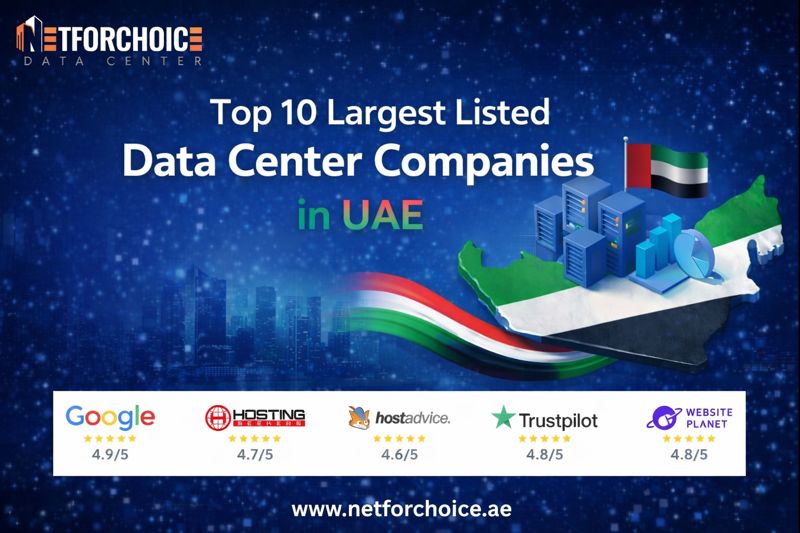How to Choose the Right OS for Your UAE Dedicated Server?

When choosing a dedicated server to your business in the UAE, one of the most important choices you will make is the operating system (OS). Your operating system will influence the performance of your server, its security, and the ease of handling. In this blog we are going to compare the two main OS options; Windows and Linux to make your choice.
1. Basic Comparison Windows vs. Linux
Windows Dedicated Server:
- Best suited to: Companies that utilize Microsoft products (e.g. Microsoft Exchange, Microsoft SQL Server, Microsoft Active Directory).
- Interface: Graphical interface that is user-friendly.
- Licensing: OS and applications must be licensed.
- Ideal for: Companies which require an easy integration with Microsoft products.
Linux Dedicated Server:
- Best suited: Businesses who require flexibility and cost-efficiency.
- Interface: Command-line interface (CLI) or optional control panels such as cPanel or Plesk.
- Licensing: Open-source, free.
- Ideal usage: Web hosting, bespoke application, and cost-effective, high-performance business applications.
2. Performance and Speed
Windows Servers:
Resource-intensive: GUI consumes more memory and CPU, which can result in slower performance.
Ideal in: Running applications that are based on Windows but not resource-intensive applications.
Linux Servers:
Efficient: It is lightweight, consumes less resources, and is able to process server applications quicker.
Ideal: Companies that have databases, websites or bespoke applications that need to be run in the best possible way.
3. Cost Considerations
Windows Servers:
License fees: Windows OS has a paid license and therefore it may be costly.
Software expenses: Extra expenses of Microsoft software (e.g. SQL Server, Exchange).
Linux Servers:
No license fees: Free of cost to use and no extra license cost of the OS and standard software.
More affordable: Suitable to those businesses operating under-budget or wanting to expand without incurring extra expenses.
4. Security
Windows Servers:
Integrated applications: Windows defender, encryption and firewall.
Vulnerabilities: More likely to be attacked by malware and cybers since it is more popular.
Needs frequent updates to fix vulnerabilities and be secure.
Linux Servers:
Open-source: Fixed vulnerabilities are regularly updated by the community.
Safer: It is less popular with malware.
Better security options: Better security options are provided and it is suitable to the business which is more concerned about security.
5. Compatibility and Software Requirements
Windows Servers:
Best for: Running Microsoft-based software, such as Active Directory, Exchange, and SQL Server.
Limited flexibility: Less customizable than Linux, especially for open-source applications.
Linux Servers:
Highly customizable: Can be used with web servers (Apache, Nginx), databases (MySQL, PostgreSQL), and programming languages (PHP, Python).
Most appropriate to: Firms requiring or that have use of a total control of their server environment, or the firms utilizing open-source programs.
6. Support and Maintenance
Windows Servers:
Official Support: Direct support by Microsoft e.g. frequent patches and updates.
Most appropriate to: Firms that need quality assured vendor supported services.
Linux Servers:
Community based support: Offers free services, forums and tutorials.
Requires expertise: Companies needs internal Linux expertise or management services.
7. Simplicity of Operation and Administration
Windows Servers:
Easy to use: Graphical interface makes the server management and setup easier.
Easy to support: Suitable to businesses which lack in-depth IT knowledge.
Linux Servers:
CLI-based: More technical expertise is required, but it is fully controllable and flexible.
Management tools: Server control panels such as cPanel and Plesk may make the management of the server easier.
8. Scalability
Windows Servers:
Scalable: Enables large scale enterprise applications.
Additional expenses: There might be a need to purchase extra licensure or resources to scale up.
Linux Servers:
Extremely scalable: It is simple to scale without incurring extra costs in licensing.
Scalable: The ability to expand with your business without the cost of acquiring more licenses.
Choose the right operating system (OS) for UAE Dedicated Server:
Whether to use windows or Linux on your dedicated server in the UAE will be based on what your business requires. This is a brief guide that will help you make a decision:
Use Windows Operating System in case:
- You use Microsoft applications (e.g. Microsoft SQL, Exchange).
- You require an easy graphical interface.
- Licensing fees can be fitted in your business.
Select Linux Operating System when:
- You require an affordable, scalable and high performance solution.
- You have open source software or proprietary web hosting systems in your business.
- You desire to have complete command of your server without any extra licensing fees.
Also Read: How Much Does a Dedicated Server Cost in UAE?
Conclusion
The selection of the appropriate operating system (OS) on your dedicated server in the UAE is the key to the performance of your business, its security, and the general management of your server. You may use Windows because of its simplicity of use and compatibility with Microsoft products, or Linux because it is cost-effective, flexible, and performance-intensive, but the point is that you have to match your choice with the demands of your business.
To learn more about dedicated server hosting in the UAE and get additional information on picking the most suitable opportunities as far as your business is concerned, make sure to visit our Ultimate Guide to Dedicated Server Hosting in UAE (2025 Edition).
This guide will offer precise details on how to choose the appropriate server configuration and the OS, which will suit the growth of your business and operational efficiency.
People Also Ask:
Top Question: What is the distinction between Windows and Linux dedicated servers?
Answered: Windows is easy to use and it suits Microsoft applications, whereas Linux is more versatile, effective and economical in web hosting and custom software.
Top Question: Is Windows or Linux more secure operating system?
Answered: Linux is mostly safer given that it is open source and there is a reduced probability of malware targeting it.
Top Question: How can I tell the best OS to use in my business?
Answered: Select Windows when you require the integration of Microsoft products. Choose Linux when you require performance, flexibility and cost savings.
Top Question: Am I able to change between Windows and Linux?
Answered: Sure, it is possible to switch, yet the migration process might demand extra configuration and setup.
Top Question: What are the price distinctions between Windows and Linux dedicated servers?
Answered: Windows needs licensing charges and thus it is costly whereas Linux is free to use and thus it saves a lot of money.
FAQ’s:
1. Which is the most appropriate operating system of a dedicated server?
Which operating system is best suited to a dedicated server? This is a question that relies on your own particular requirements and the kind of applications you intend to utilize.
Windows Server is well suited to businesses that use Microsoft software, including SQL Server, Exchange, or custom windows applications.
Businesses that want cost-effectiveness, customization, and better performance of web hosting, databases as well as open-source applications prefer Linux.
Linux is usually the most appropriate to use to perform optimally and at a very low cost whereas Windows is used where compatibility with Microsoft products is required.
2. What is the impact of operating system on servers?
OS is an important factor in the performance of the server in that it defines the efficiency in which resources such as memory, CPU, and storage are used.
Windows Server may be resource-intensive because of a graphical user interface and the integration with other Microsoft applications. This has a minor impact in performance as compared to lighter systems.
Linux, however, has a reputation of being lightweight and efficient. Linux also uses less system resources than Windows and therefore is an ideal operating system to use when you need the best performance out of an application like hosting a web site or a huge database.
3. What is the difference between windows and Linux security servers?
Windows and Linux have good security but here are the differences:
Windows Servers are more prone to malware and cyber-attacks because of their popularity, and therefore timely updates, firewalls, and antivirus software are essential to security.
Linux Servers are relatively more secure in that they are less exploited and are supported by open-source security updates which are community driven. Moreover, Linux also provides a more detailed control over security settings and therefore it is a perfect choice in business where high levels of security are required.
4. What is the best operating system to use on the server of my business?
When selecting the suitable operating system to use in the server of your business, take into consideration:
Compatibility: Select Windows when your business use Microsoft applications or Windows-specific software.
Performance: Use Linux when you require a high performance server either in web hosting or databases.
Security: When security is the primary issue, Linux tends to be the more secure operating system because it has a lower rate of attacks and is customizable in terms of security.
Cost: Linux is free and open-source but windows need to be licensed. Take into consideration your budget and whether you need to add the cost of Windows to your business.
5. What are the benefits of dedicated server with Linux operating system?
Linux OS dedicated server has the following benefits:
Cost effective: Linux is free to use and does not require any licensing fee, thus it is an affordable option to any business that seeks to reduce expenditure.
Performance: Linux is light, and runs smoothly, and provides an excellent performance to resource-intensive applications like databases, and web servers.
Security: Linux has been described as being secure, and the open-source community makes frequent updates. The fact that it has a low rate of attacks makes it a safe choice to businesses.
Flexibility: Linux has high levels of customization and businesses can customize their servers to suit their particular requirements.
6. What factors should I consider when choosing an operating system for my server?
When choosing an operating system for your server, consider the following factors:
Application Compatibility: Ensure the OS is compatible with the applications you need to run (e.g., Microsoft-based apps for Windows, open-source apps for Linux).
Performance Requirements: Select an OS that can meet the performance requirements of your business. Linux is the very best to run performance-intensive applications, whereas windows are best suited to run applications that are dependent on Microsoft tools.
Security: In case security is a concern, then Linux has a high level of security and is less prone to attacks.
Budget: Think of the licensing fee with Windows and the free Linux option that will save on the overall server cost.
Management Skills: Look at the skills of your IT team. Windows is easy to use whereas Linux needs more technical expertise.
Talk to Dedicated Server Expert Now



